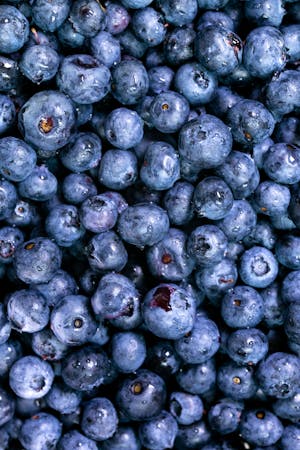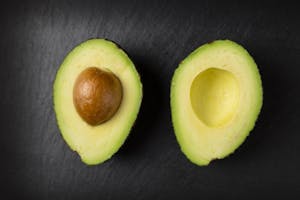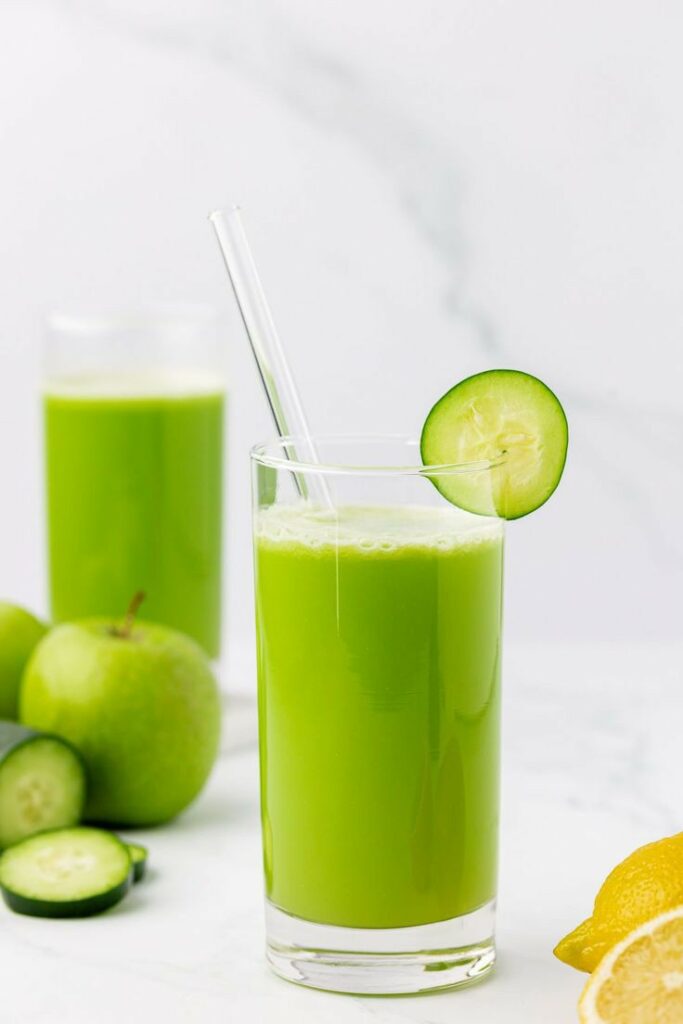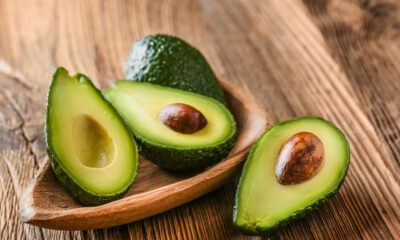Health
The Top 10 Fruits To Eat Weekly For Good Health

Eating fruits on a regular basis is one of the simplest methods to maintain good health and energy. They include vital vitamins, minerals, and antioxidants that your body requires to function properly.
Whether you want to enhance your immune system, improve your skin, or simply feel better overall, including the correct fruits in your weekly diet can make a big difference. Let’s look at the top ten fruits to eat weekly for excellent health. These fruits are not only delicious, but also extremely nutritious for your body.
Table Of Contents
1. Apples.
2. Bananas
3. Blueberries
4. Oranges
5. Strawberries.
6. Grapes
7. Avocados
8. Pineapple
9. Mangoes
10. Kiwis
11. Conclusion
1. Apple Fruits.
“An apple a day keeps the doctor away.” You’ve probably heard this saying before, and with good cause. Apples are among the most beneficial fruits for your health. They are abundant in fiber, especially if you eat the peel, which is beneficial to your digestion. Apples are also high in Vitamin C, which helps your body stay healthy and fight infections.

Nutrients in apples
- Vitamin C boosts the immune system.
- Fiber promotes intestinal health.
- Antioxidants protect your cells from harm.
How To Eat Apples
You can eat apples in a variety of ways. Eat them raw, add them to salads, or bake them for a healthy dessert. To maintain good health, eat an apple at least a couple times every week.
2) Banana fruits
Bananas are an excellent source of energy. They are high in potassium, which helps your muscles and nerves function properly. If you’re feeling tired or need a quick energy boost, bananas are your go-to fruit.

Nutrients in bananas.
- Potassium: Promotes heart health and muscular function.
- Vitamin B6 promotes brain development and function.
- Vitamin C strengthens the immune system.
How To Eat Bananas:
Bananas are quite easy to eat. You just need to peel and eat! They can also be sliced and added to porridge, blended into smoothies, or frozen. Include bananas in your diet many times per week to maintain your energy levels.
3. Blueberries
Blueberries are small yet mighty in terms of health benefits. They are one of the greatest fruits for health because they are high in antioxidants, which protect the body from free radicals. Blueberries are also good for brain health and can help with memory.

Nutrients in Blueberries
- Antioxidants protect your cells from harm.
- Vitamin C boosts the immune system.
- Fiber improves digestion and keeps you full.
How To Eat Blueberries:
Blueberries are excellent on their own, but you can also mix them into yogurt, cereal, or smoothies. Eat blueberries many times per week to reap the full benefits of this delicious fruit.
4) Oranges
Oranges are well-known for being high in Vitamin C, which is essential for a healthy immune system. But that’s not all: they’re high in fiber and other vitamins that help keep your body healthy. Eating oranges on a daily basis can keep you hydrated and energized.

Nutrients in Orange
- Vitamin C: Improves immune function and skin health.
- Fiber promotes intestinal health.
- Folate is essential for cell function and tissue growth.
How To Eat Oranges:
Oranges are both refreshing and easy to eat. Simply peel and enjoy! You can also consume freshly squeezed orange juice. Aim to consume an orange or a glass of orange juice per week.
5. Strawberries
Strawberries are high in vitamins and antioxidants, in addition to being delicious. They are particularly abundant in Vitamin C and manganese, both of which aid in bone healing and maintenance. Furthermore, their natural sweetness makes them a favorite with many.

Nutrients in Strawberries
- Vitamin C boosts the immune system and improves skin health.
- Manganese promotes bone health and metabolism.
- Fiber: Aids digestion and promotes good weight management.
How To Eat Strawberries:
Strawberries can be eaten fresh, blended into smoothies, or added to desserts. They also work well in salads or as a topping for yogurt. Eat strawberries frequently to appreciate their sweetness and health advantages.
6. Grapes:
A beneficial fruit for heart health. They include antioxidants like as resveratrol, which protects the heart and lowers blood pressure. Grapes are extremely hydrated, making them an excellent snack at any time of day.

Nutrients in Grape
- Resveratrol promotes heart health.
- Vitamin C boosts the immune system.
- Vitamin K is essential for blood clotting and bone health.
How To Eat Grapes:
Grapes are ideal for eating straight out of the refrigerator. You may also mix them into salads or freeze them for a pleasant taste. Eating grapes on a regular basis will benefit your heart and overall wellness.
7. Avocados
Avocados are unique because they are high in healthful fats. These fats are beneficial to your heart and can help lower harmful cholesterol levels. Avocados are high in fiber, potassium, and vitamins, making them one of the healthiest fruits available.

Avocado Nutrients:
- Healthy fats promote heart health.
- Potassium: Helps regulate blood pressure.
- Vitamin E promotes skin health.
How To Eat Avocados:
Avocados can be spread fresh, added to salads, or blended into smoothies. Incorporate avocados into your diet a couple times per week to reap the benefits of healthy fats.
8) Pineapple
Pineapple is more than simply a tropical pleasure; it also aids digestion. It contains bromelain, an enzyme that breaks down proteins and facilitates digestion. Pineapple is particularly high in Vitamin C and antioxidants, making it an excellent choice for a weekly fruit intake.

Nutrients in pineapple
- Bromelain: improves digestion and lowers inflammation.
- Vitamin C: boosts the immune system and improves skin health.
- Manganese: promotes bone health and metabolism.
How to Eat Pineapples:
Pineapple is great by itself or in fruit salads. You may also mix it into smoothies. To maintain good digestion, include pineapple in your diet at least once a week.
9. Mangoes
Mangoes are not only sweet and juicy, but also high in nutrients that help your immune system. They are high in Vitamin A, which is necessary for eye health, and Vitamin C, which strengthens your immune system.

Nutrients in mangoes
- Vitamin A: promotes eye health.
- Vitamin C: boosts your immune system.
- Fiber: aids digestion and regulates blood sugar levels.
How To Eat Mangoes:
Mangoes are excellent when eaten fresh, but they can also be included into smoothies and salads. Eating mangoes on a daily basis can assist to strengthen your immune system and keep your body healthy.
10. Kiwis
Kiwis are small, yet nutrient-dense. They are high in vitamin C, vitamin K, and fiber, making them one of the healthiest fruits available. Kiwis can aid digestion, boost the immune system, and keep your skin looking good.

Nutrients in Kiwis
- Vitamin C: Strengthens your immune system and improves skin health.
- Vitamin K promotes bone health.
- Fiber: Aids digestion and promotes good weight management.
How To Eat Kiwis:
To eat kiwis cut them in half and scoop out the flesh using a spoon. They also work well in fruit salads, smoothies, and as a yogurt topping. Including kiwis in your weekly diet can provide a nutritional boost.
Conclusion
Adding these ten fruits to your weekly diet is an easy and delightful method to improve your health. From grapes’ heart-healthy benefits to papayas’ digestive assistance, each of these fruits has its own unique benefit that your body will appreciate. Remember that staying healthy does not have to be complicated—it can be as simple as eating a piece of fruit every day.
At Xclusivstarsng, we are dedicated to providing you with not only the latest news, but also insights and suggestions on how to stay healthy. So, make these fruits a regular part of your diet and watch your body reap the benefits.
If you found this useful, visit our website for other ideas, methods, and insights on how to live your best life. We also provide the most recent updates on what Nigerian celebs are bringing. Stay up-to-date on health, Nigerian celebrities, and movie reviews to maintain your physical and mental well-being.
Health
Detoxing With Local Ingredients–What Works?

Before the advent of chemicals and advancement in technology, a lot of value was placed on natural ingredients like vegetables, herbs, and spices.
From the quantities used in soups to their roles in preventing common body discomforts. Natural ingredients promote sustainability of our body systems.
Just like in the past, detoxing with local ingredients still works today. You could incorporate them into waters or meals and even apply some to your skin to treat infections.
Incorporating some ingredients in the right proportion to our meals can avoid spending a fortune on illnesses later.
Embedded in nature is its therapeutic ability, providing natural remedies for situations that are within care.
Here are some local ingredients for detoxing and how to incorporate them into your meals
Lemons

Lemons are rich in Vitamin C, an antioxidant that helps support the immune system and may help fight colds and other illnesses. Adding a small amount of lemon to a cup of warm water can improve digestion and aid bowel movement, thereby preventing bloating. Lemon is also an effective local ingredient for weight management.
Ginger

Ginger is often included in detox plans to help reduce inflammation and purify the body. It also supports the optimal function of the liver to support the body’s natural detox process. Boiling ginger in water for 7-10 minutes produces a simple detox ginger tea to which you can add honey or lemon for flavor. It can also be added to meals for added detoxification benefits.
Cucumber

Cucumber is rich in water, making it useful for hydration. It supports detoxification by flushing out toxins through its natural diuretic effect. It also promotes easy bowel movement helping to prevent constipation. It can help flush out excess sodium and toxins from salty foods and alcohol. Cucumber can be blended with fruits to make detox juice. It can also be added to smoothies with other vegetables for variety.
Leafy Greens

Leafy greens are packed with vitamins, chlorophyll, minerals and fiber. These nutrients are beneficial for detoxification processes. The chlorophyll pigment helps neutralize the toxins in the body and eliminate them through the liver. The fiber content aids easy digestion of food which allows the easy movement of bowels and prevents bloating. The vitamins also support the body’s detox process. Leafy greens can be incorporated into foods in different ways. It could be added to soups to enrich the meal. Leafy greens can also be blended with fruits to make smoothies. You can also enjoy leafy green in salads, served with other vegetables.
Local ingredients can be game-changers when used appropriately. However, they should not replace professional medical advice if you have underlying medical conditions.
Health
Morning Workouts vs Evening Workouts — Which is Better For Your Health?

We all want to stay fit and healthy. But one common question that often comes to mind is: Should I work out in the morning or in the evening? Some people enjoy waking up early and starting their day with a workout. Others feel stronger and more energized in the evening. So, which option is healthier? Let’s find out.
The Benefits of Morning Workouts

Some people prefer exercising in the morning. Morning workouts help wake you up and energize you for the day. When you exercise, your body releases endorphins—feel-good chemicals that relax you and reduce stress. These help keep you calm and focused throughout the day.
Exercising in the morning also helps you stay consistent. It allows you to complete your workout before daily responsibilities, like work or errands, get in the way. Some studies even suggest that morning workouts help regulate appetite and improve sleep at night.
For those trying to lose weight, exercising in the morning before eating may help the body burn fat more efficiently. However, this benefit can vary depending on your body type and specific fitness goals.
The Benefits of Evening Workouts

Not everyone likes to exercise early in the morning. Many prefer evening workouts due to their work or school schedules. After a busy day, exercising can help reduce stress and tension, making it a great way to unwind before bed.
Your body temperature is also higher in the evening, which makes your muscles more flexible and reduces the risk of injury. This means you may perform better—lifting heavier weights or running faster—than you would in the morning. Having eaten throughout the day also gives your body more fuel for a stronger workout.
Evening workouts can also be social. Whether it’s a group class, gym session with friends, or a post-dinner walk with family, evening exercise can be fun and motivating.
Which is Better?

The truth is, both morning and evening workouts offer great benefits. What matters most is choosing a time that fits your lifestyle. If you enjoy working out in the morning and it fits your schedule, then stick with that. But if you feel more energized and relaxed in the evening, that’s perfectly fine too.
The key is consistency. Regular exercise—whether in the early hours or later at night—is what keeps you healthy and fit. Whether you’re running at dawn or hitting the gym after dark, both can help you reach your fitness goals.
There’s no universally right or wrong time to exercise. Both morning and evening workouts can boost your health and happiness. The best workout is the one you enjoy and can stick with. Listen to your body, choose a time that works for you, and take full advantage of all the benefits that exercise offers.
Health
Self-Care Friday: Rituals to Rejuvenate Your Mind and Body

Life can get overwhelming at times, but taking care of yourself can be a game-changer.
Your mind and your body are your greatest assets and they deserve to be treated with utmost respect. Give your mind the nourishment it deserves and your body the care it craves. Why? They are the real stars of your life.
When the body is sick and the mind is troubled, life can feel overwhelming and hinder your ability to function at your best.
Treat your body with grace and elegance and adorn your mind with the right information or content. Build a care system around these two important themes — body and mind.
Here are effective rituals you can start practicing to improve your self-care.

BODY CARE
Say No to Body Shaming
If you don’t accept your body nobody else will. It all starts with you. Love yourself and accept your body the way you are. Instead of hating your body, find a solution. E.g Hitting the gym, starting a skincare routine and more.
Know Your Body Type
Knowing your body type and wearing clothes that highlight your elegance and poise is a confidence-boosting practice. For example a slim person should go for dresses that add volume, rather than those that overly emphasize thinness.
Don’t Use Harsh Cream on Your Body
Tone and use the right skincare products that enhance your natural beauty. Avoid bleaching at all cost, it is not stylish.

MIND CARE
Practice Gratitude
You see, there is always something to be grateful for no matter what you’ve been through. Look at life through positive lens and be thankful. Gratitude is therapeutic. It makes you see reasons to live again.
Be in Charge of Your Thoughts
Be mindful of the information you allow into your mind. Be selective about the news and content you consume to avoid mental overload or negativity.
Heal from Past Trauma
One of the best ways to heal is to forgive. If there’s someone you are hold resentment towards, try to let it go. I know this might not be easy, but it will free you from bitterness and anger. It will help you to release toxic feelings and give room for peace. Most importantly, forgive yourself. We are humans, we’ve made mistakes, but we don’t have to be defined by them.
Be Positive
Don’t allow your mind to be overwhelmed with negativity. Train yourself to think positively. Celebrate the success of others genuinely. And avoid harboring jealousy towards friends who are making progress — your time will come too.
Practice Journaling
Journaling is a powerful way to reflect on your thoughts and emotions. Take time alone with yourself and unwind. Write down what you are grateful for, what you fear, and what you’d like to explore in the future. Writing down your thoughts helps you to organize your thoughts and that way, you will be more committed to them than when you leave it in your head.

BOTTOM LINE
Self-care doesn’t have to be a luxury — it’s in little things that cost very little but means a lot. Prioritize your mind and body, and you will elevate your game all-round. After all, without a healthy body and a sound mind, you won’t function at your best.
I hope you will try these listed rituals intentionally and enjoy a better life.
-

 Fragrance2 months ago
Fragrance2 months agoMaster the Art of Perfume Layering for a Signature Scent
-

 Movies2 months ago
Movies2 months agoThe 5 Best New Nollywood Movies to See on Netflix
-

 Beauty2 months ago
Beauty2 months agoUnapologetically Red: Nancy Isime’s Unwavering Commitment to her Favorite Lipsticks Shades
-

 Music2 months ago
Music2 months agoAyra Starr & Wizkid’s “Gimme Dat” Honest Review
-

 Celebrity News1 month ago
Celebrity News1 month agoFrom Nollywood to the Navy: Grace Bassey, Former Nollywood Actress,Joins the U.S Navy.
-

 Skin Care2 months ago
Skin Care2 months agoNot Just Fine Lines: 5 Shocking Signs You’re Losing Collagen
-

 Sex & Relashionships1 month ago
Sex & Relashionships1 month ago10 Signs You Are The Less Affectionate Partner
-

 Deco1 month ago
Deco1 month agoWall Deco Inspiration – How to Create a Gallery Wall
-

 Skin Care2 months ago
Skin Care2 months agoDIY Face Mask Using Local Ingredients
-

 Food1 month ago
Food1 month agoFood for Thought: The Psychology of Eating



















